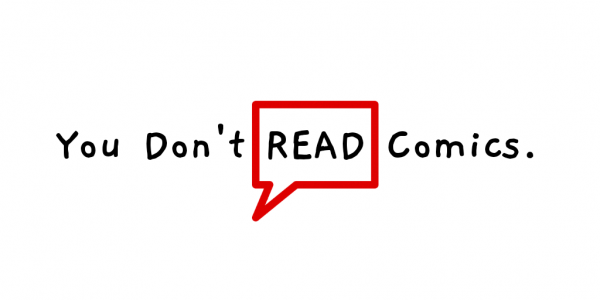Department of Truth #1 // Review
Cole Turner has seen things that make him feel the need to vomit. He's just been hauled-in to the Library of Congress by government people. He's fairly certain that they're going to kill him. What they're actually going to do is a lot more complicated than that, as he is soon to find out in the first issue of The Department of Truth. Writer James Tynion IV opens a darkly dazzling, little drama with the aid of artist Martin Simmonds. Weird fiction has been a home to tales of government conspiracies for a very, very long time Tynion and Simmonds manage to find a novel approach to dark fantasy in a world of conspiracy.
Cole Turner is driven by a woman named Ruby. She doesn't want him to throw-up in her car. He doesn't want to die. He is taken before a mysterious man in the Library of Congress. The man asks him about an encounter he'd had after attending a flat earth convention. What starts off as idle curiosity from a man working for the FBI gets weird. He sees footage of the moon left on the cutting room floor by Stanley Kubrick. Then he's taken to that place where the sky meets the earth. There's a multiple homicide there. Now he's being asked about it by man who turns out to be from the Department of Truth, which also turns out to be Cole Turner's new employer.
Tynion is working from an interesting place here. The premise is that reality is created by mass belief. If enough people believe that something crazy is real...it becomes real. And so the U.S. Department of Truth is tasked with making certain only weird fringes believe those things that would destabilize reality if enough people adopted them. The three main characters all seem fiercely interesting. Ruby is mysterious. Cole is a sympathetic figure thrust into a strange world. The mysterious employer turns out to be kind of a major figure in history who only happens to have some very clever bits of dialogue that convey a very charming character. The Department of Truth is some very, very sharp stuff.
Simmonds' work has a shadowy richness about it that feels like a darkly lucid Bill Sienkiewicz. Interestingly enough, back in the '90s, Sienkiewicz worked with Alan Moore on a brilliant fact-based nonfiction graphic novel about conspiracy called Brought to Light. Simmonds' work on the first issue of The Department of Truth channels the earthbound darkness of some of Sienkiewicz's work on Brought to Light. The stylishly sinister look and feel of a shadow world could hit the page with a light cough if the artist didn't know how to properly finesse the drama. Simmonds does a brilliant job of doing so. The surreal landscape of the edge of the world might not hit the page with the kind of strange impact that it could, but the trickier bits of Tynion's nuanced drama are strikingly vivid.
The premise for The Department of Truth is so simple in its cleverness. The possibilities for fiction in a world of conspiracy at the heart of reality are endless. Tynion's idea is very appealing, but he's going to need an artist with Simmonds' exact aesthetic to bring it to the page in style as the series progresses. There are few other artists working today who could competently bring a drama like this to the page.










